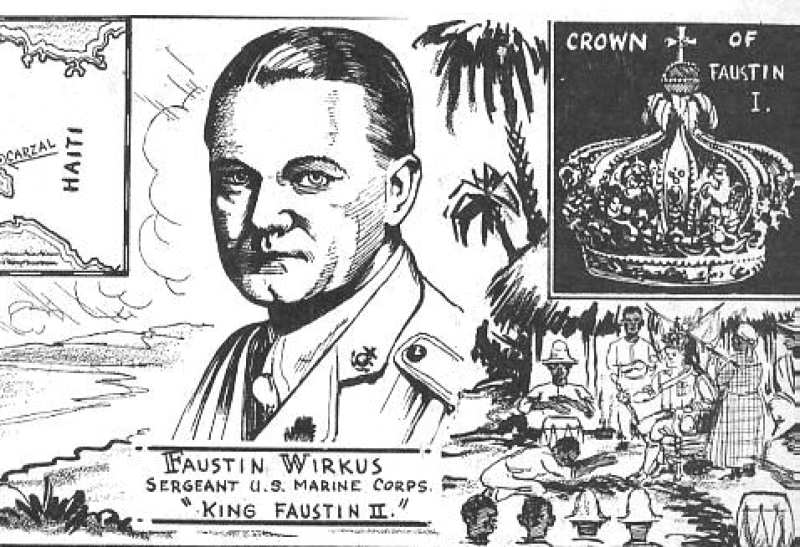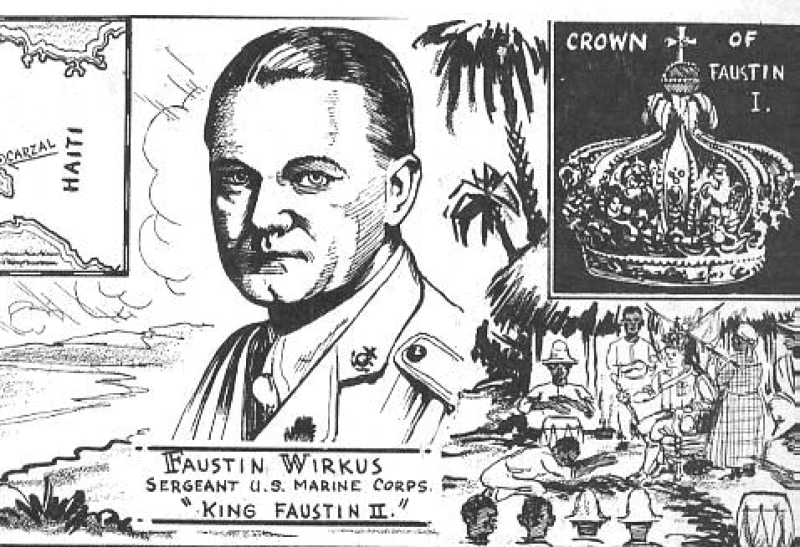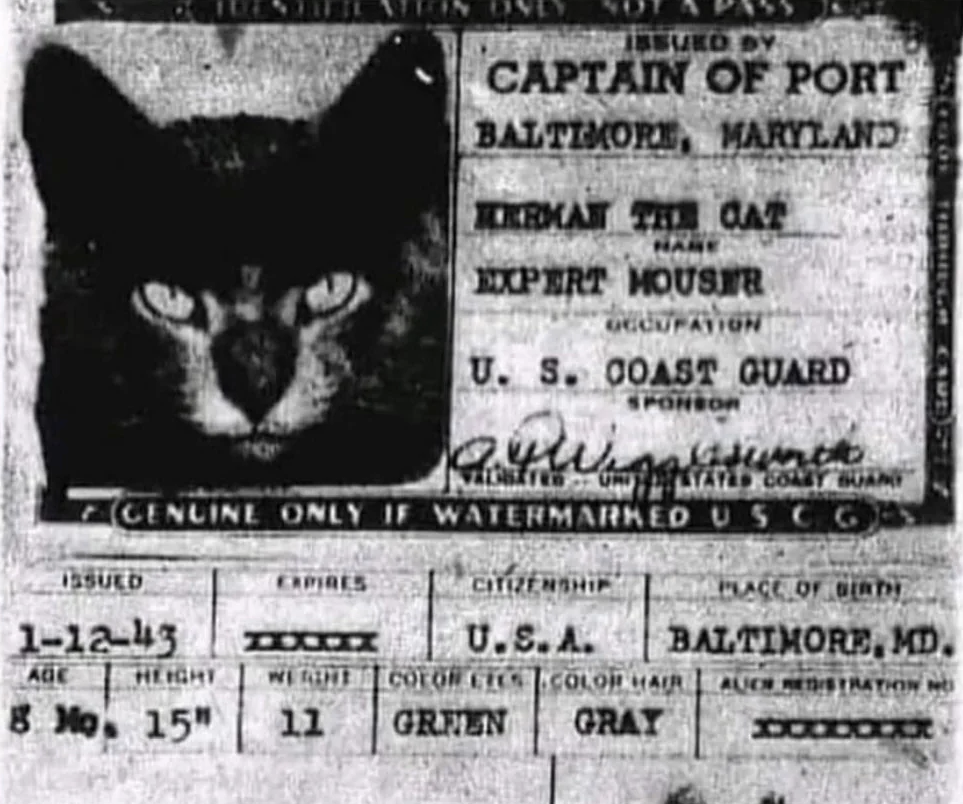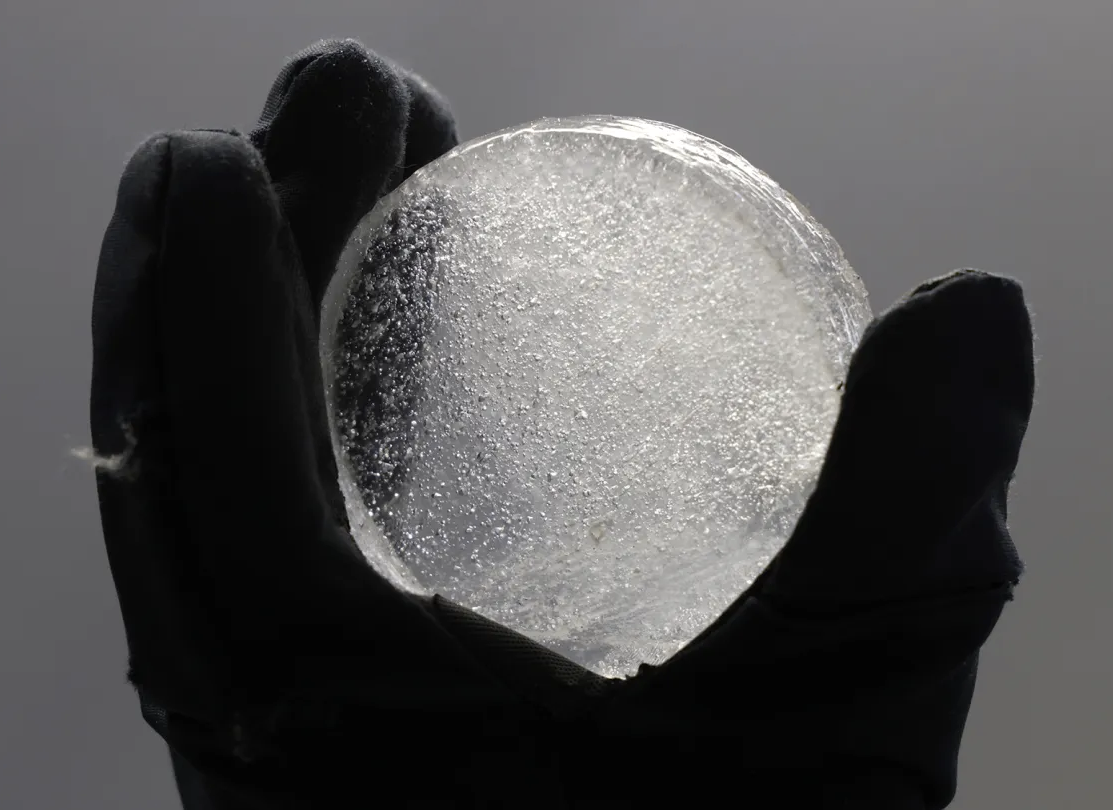The US Marine who became the king of a tropical island nation

Hi everyone! Mathew Ingram here. As many of you probably know, I am able to continue writing this newsletter in part because of your financial help and support, which you can do either through my Patreon or by upgrading your Ghost subscription to a monthly contribution. I enjoy gathering all of these links and sharing them with you, but it does take time, and your support makes it possible for me to do that. And I appreciate it, believe me! If you like this newsletter, please share it with someone else, and thanks for being a reader.

From Poles.org: "Born in Pittston PA, Faustin H. Wirkus was destined for the life of a coal miner, but he ran away at 18 and joined the Marines. In 1925, while he was a gunnery sergeant, he was appointed Marine administrator of La Gonave in order to halt internal disputes among the 12,000 natives on the small island. La Gonave had had a king named Faustin, so when Wirkus arrived the natives knelt before him, and Queen Ti Meminne pronounced him the reincarnation of the late ruler. Wirkus became king and wore a two-foot crown. He was admitted to voodoo rituals and was said to have acquired a deeper knowledge of black magic than any other white man of his time. However, officials of Haiti, which claimed jurisdiction over La Gonave became jealous and forced Wirkus to abdicate in 1929. He resigned from the Marines the same year."
Queen guitarist Brian May has spent a decade fighting to save the badgers

From Scientific American: "Brian May has many strings to his guitar. The musician, who is still touring with his rock band Queen, is also an astrophysicist, specializing in 3D stereoscopic images of distant bodies. And to the UK public, he’s also a passionate campaigner for animal rights. After abandoning his PhD at Imperial College London in 1974 to follow his musical passions, May finally returned to complete his doctorate in 2007. Soon after, the rock star embroiled himself in a polarizing scientific row over whether the European badger was causing mass infection of cattle with bovine tuberculosis. Each year, the problem costs the UK government more than £100 million (US$130 million) and leads to the slaughter of more than 20,000 cows. In a BBC documentary airing in the United Kingdom on 23 August, May describes his decade-long research project to understand what is behind bovine TB."
An Italian burglar was caught because he got distracted by reading a book

From the BBC: "The 38-year-old reportedly gained access to a flat in the Italian capital's Prati district via the balcony but became distracted after picking up a book about Homer's Iliad on a bedside table. The 71-year-old homeowner is said to have awoken and confronted the alleged thief, who was engrossed in the book. News of the failed burglary attracted the attention of the book's author, who told local media he wanted to send the man a copy so he could "finish" his read. After being caught off-guard, the alleged thief reportedly attempted to make a quick getaway by escaping via the same balcony, but was arrested shortly afterwards. Giovanni Nucci, the author of The Gods at Six O'Clock, which explains the Iliad from the perspective of the gods, said his personal favourite deity was Hermes, the god of thieves, who is also the god of literature."
Cats were once issued passports while traveling on ships to kill rats

From Hempwell: "Ship cats were valued members of the crew in the mid-20th century. They were skilled rodent catchers, and their presence helped control the population of rats and mice on ships. These pests were notorious for damaging supplies and spreading diseases, so having cats aboard was essential to the safety of the crew. To acknowledge the cats' contribution and ensure their safety during international travels, they were sometimes given passports. These passports were not legally recognized, but they were a unique and lighthearted tradition. They typically consisted of a small booklet with pages that included the cat's name, description, and an area for their paw print. When a ship cats's passport was presented to the authorities at a foreign port, the cat's paw print, obtained using ink or paint, was added to the designated page."
It's not just you — toilet paper rolls have been getting smaller and smaller

From The Hustle: "These days, a regular Charmin Ultra Soft roll, if you can find one, has 56 sheets. Even the roll they market as “Double” only has 154. And the 1992 rolls are hardly the largest — the back of the package includes a note from Procter & Gamble explaining these rolls have fewer sheets than a previous version. Toilet paper is shrinkflation at its absolute worst. Edgar Dworsky is a Massachusetts-based consumer advocate and perhaps the only person in the US who reads the fine print, and he’s consistently tracked changes to the sizes of products like cereal, snack chips, frozen pizza, and coffee mix. When it comes to downsizing products, Dworsky tells me that toilet paper, along with paper towels, “probably come in first place.” He started collecting toilet paper around the 1970s. Back then, Charmin’s regular roll had 650 sheets of single ply toilet paper…650! By 1975, the roll shrunk to 500 and then to 400 in 1979."
Over 1,700 frozen viruses have been found in a Tibetan glacier

From Popular Science: "Above 20,000 feet in the Himalayas, yaks are one of your only transportation options. It takes dozens of the furry beasts to help you move an entire glacier core back down to the freezer truck, each carrying about 40 feet-worth of segments of long-frozen ice on its back. Inside you might uncover something never documented before–for instance, the preserved genomes of 1,705 virus species, going back as far as 41,000 years. A study published August 26 in the journal Nature Geoscience analyzes exactly that: From an ice core collected from Guliya Glacier on the Tibetan Plateau, Thompson and a team of interdisciplinary co-researchers have discovered and cataloged about 50 times more viral information than we’ve ever previously had from glaciers."
Horses cross the black-ash desert in Iceland
60 horses crossing the Icelandic black ash desert with the north wind blowing.
— Science girl (@gunsnrosesgirl3) August 27, 2024
📹 hekluhestar
pic.twitter.com/9cDVFXOzS2
Acknowledgements: I find a lot of these links myself, but I also get some from other newsletters that I rely on as "serendipity engines," such as The Morning News from Rosecrans Baldwin and Andrew Womack, Jodi Ettenberg's Curious About Everything, Dan Lewis's Now I Know, Robert Cottrell and Caroline Crampton's The Browser, Clive Thompson's Linkfest, Noah Brier and Colin Nagy's Why Is This Interesting, Maria Popova's The Marginalian, Sheehan Quirke AKA The Cultural Tutor, the Smithsonian magazine, and JSTOR Daily. If you come across something interesting that you think should be included here, please feel free to email me at mathew @ mathewingram dot com



